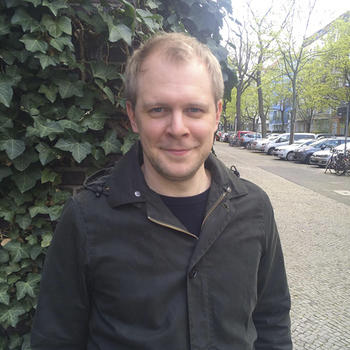Dr. Johannes Stephan

Seminar für Semitistik und Arabistik
Arabic Studies
Researcher
Indirect transmission
Room -1.0054
14195 Berlin
Johannes Stephan has studied Islamic and Middle Eastern Studies in Halle an der Saale, Damascus, and Bern. He was a research and teaching associate in the Institute of Islamic and Middle Eastern Studies at the University of Bern until 2018 where he earned his PhD degree (2016) with a thesis on the literariness of early modern travelogues in Arabic, most prominently the Book of Travels by the Arabian Nights storyteller Hanna Dyab (1764). In recent years he has published on Arabic literary and intellectual history of the 18th and 19th centuries and taught classes on Arabic travel literature, historiography, and the modern history of the Middle East.
His previous research project offers a solid reconceptualization of Arabic literary history. By critiquing the modern notion of literature and its normative implications, his study suggests taking both the problem of contextualizing non-canonical texts and the very notion of literariness as a dynamic nucleus of literary history. More specifically, he focuses on the textual reconstruction and detailed analysis of the narrative constitution of the The Book of Travels (Kitāb al-Siyāḥa, 1764), written by Arabian Nights‘ storyteller Hanna Dyab, to advance an interpretation of early modern writings in Arabic. The study takes The Book of Travels and its contexts as a fecund field to explore pre-modern literary modes which can be conceived as a bedrock of what later came to be coined adab, the modern Arabic translation of “literature.” Thus, although historically being a non-literary and non-fictional text, the study closely examines the Book of Travels to emphasize features of literariness which can be traced in the combination of narrative dramatization and subjectivity. Within the inclusive literary history, which this project suggests, Dyāb’s book together with other autobiographic narratives from the 18thand 19thcenturies in Syria forms part of a yet underexplored group of texts that represent a considerable dynamic between the authority of writing and the power of the spoken word.
Johannes Stephan's research contributes to the ongoing rethinking of philology, its methodological problems and its ethical implications. Within the Kalīla and Dimna research investigating processes of transmission, he is particularly concerned with the collective nature of textual emergence and the character of "framing narratives".
(Selection)
– „Aṭ-Ṭahṭāwīals Kulturvermittler. Ansätze zu einem universalistischen Kulturbegriff,“ in Zwischen Kulturen.Mittler und Grenzgänger vom 17. bis 19. Jahrhundert, edited by Joachim Eibach und Claudia Opitz-Belakhal. The Formation of Europe. Hannover: Wehrhahn Verlag, 2018, 247-276.
– with Monica Corrado and Florian Zemmin, eds.: Islam in der Moderne. Moderne im Islam. Eine Festschrift für Reinhard Schulze zum 65. Geburtstag.Leiden: Brill, 2018.
– “Die Grenzen des adab. Versuch über eine literaturhistorische Hermeneutik,“ Islam in der Moderne. Moderne im Islam. Eine Festschrift für Reinhard Schulze zum 65. Geburtstag, edited byF. Zemmin, J. Stephan, M. Corrado, 397-422. Leiden: Brill, 2018.
– “Reconsidering Transcendence/Immanence. Modernity’s Modes of Narration in Nineteenth Century Arabic Literary Tradition.” In Working with a Secular Age. Interdisciplinary Perspectives on Charles Taylor’s Master Narrative, edited by F. Zemmin, C. Jager, G. Vanheeswijck, Berlin: De Gruyter, 2016, 349-367.
– “Von der Bezeugung zur narrativen Vergegenwärtigung. Fokalisierung im Reisebuchdes Syrers Ḥannā Dyāb (1764),” Diegesis. Interdisciplinary E-Journal E-Journal for Narrative Research 4.2, 2015.
https://www.diegesis.uni-wuppertal.de/index.php/diegesis/article/view/209